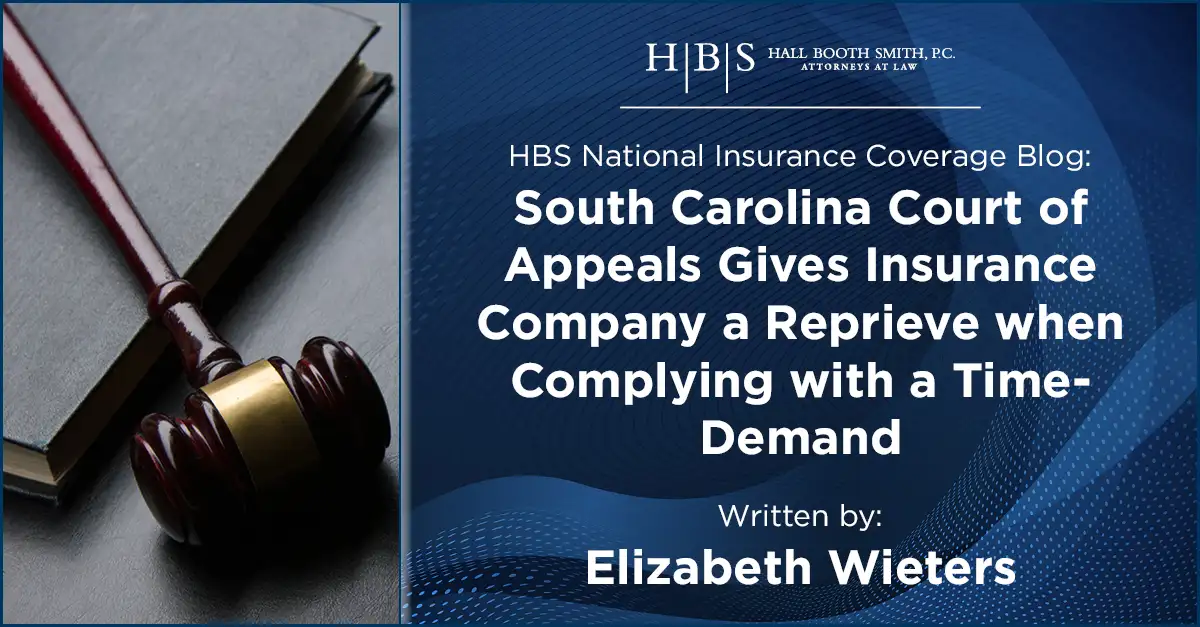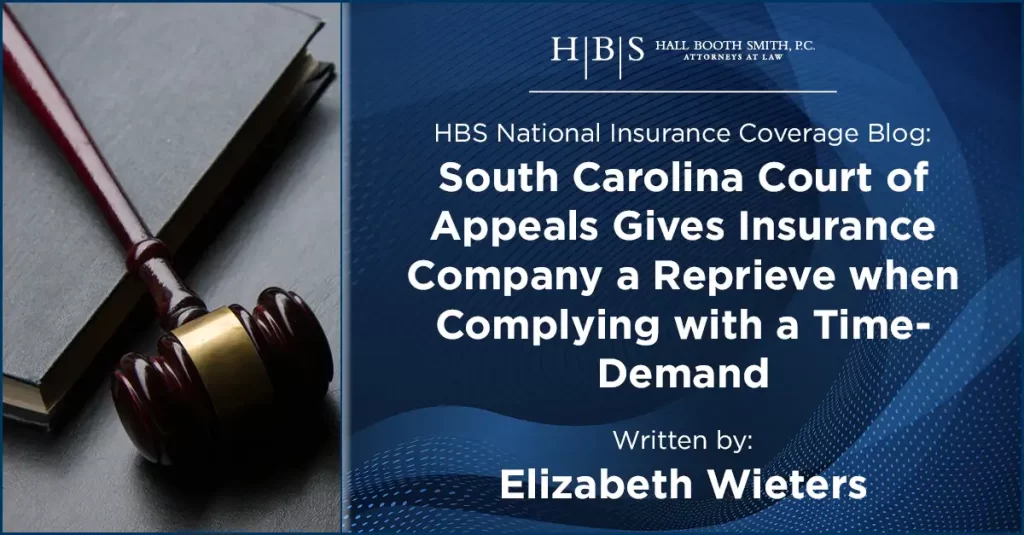
South Carolina Court of Appeals Gives Insurance Company a Reprieve when Complying with a Time-Demand

Recently, the South Carolina Court of Appeals’ enforcement of a settlement resulted in favor of an insurer in the case styled O’Conner v. Collier. In a unanimous, unpublished decision, the court enforced a settlement where the claimant argued that the insurer had not properly complied with the terms of its settlement demand.
Case Background
According to the court’s opinion, the case concerned a motorcycle accident. Counsel for the claimant notified the insurer of the driver that it would be making a claim under the driver’s policy. The insurer initially offered to settle for its coverage limit of $25,000, but the claimant’s firm responded that it would send an offer of compromise after its investigation of the case was complete.
Months later, the claimant’s law firm issued a nine-page, single-spaced time demand on the insurer, which set forth several conditions to settlement.
The Court of Appeals footnoted, “[t]his is one of three cases before this court involving similar lengthy demand letters sent by this law firm. All three demand letters include swift turnaround times for compliance with numerous, at times internally inconsistent, demands. In these three cases, three veteran circuit court judges ruled in favor of the insurance companies; one on a motion to enforce the settlement and two on motions for summary judgment in declaratory judgment actions.”
Compliance Issues
However, when the insurer sought to comply with the time-demand, it inadvertently omitted one of the two $25,000 checks required in the response packet. Apparently, one of the checks was accidentally left behind on the printer. The insurer also delivered the packet via hand-delivery, as to opposed to mailing it, which was another requirement in the time-demand.
The claimant, O’Connor, filed a lawsuit and the defendant, Collier, filed a motion to enforce settlement at the circuit court level. O’Connor argued that because the insurer “delivered only one $25,000 check with the settlement documents to the wrong address, no enforceable settlement existed.”
The circuit court disagreed and enforced the settlement. The court concluded the insurer’s response to the demand letter was “not a rejection and counteroffer of the arbitrary conditions placed in the plaintiff’s ‘Offer to Compromise,’ and was instead an inadvertent mistake by an agent of the insurance carrier in regards to arbitrary deadlines set [forth] by the plaintiff’s attorney.”
Upon review of this matter on appeal, the Court of Appeals opined that “[i]t has long been the policy of the court to encourage settlement in lieu of litigation, and courts have usually enforced settlement agreements ” (internal citations omitted).
Conclusions
Ultimately, the Court of Appeals agreed that circuit court properly granted Collier’s motion to enforce the settlement. It concluded the insurer’s failure to deliver the second check within the deadline was a good-faith mistake, not a rejection or counteroffer. Additional evidence also demonstrated the inadvertent omission of the settlement check was a good-faith mistake.
The Court of Appeals further held that given the sixteen-day turnaround on the time-demand, “the mailing address provided in the demand letter was not a material term of the offer of compromise.” Since the insurer opted to hand-deliver the acceptance packet to the physical address as opposed to snail-mailing, the court found this was not a material breach of the demand letter, either.
Disclaimer
This material is provided for informational purposes only. It is not intended to constitute legal advice nor does it create a client-lawyer relationship between Hall Booth Smith, P.C. and any recipient. Recipients should consult with counsel before taking any actions based on the information contained within this material. This material may be considered attorney advertising in some jurisdictions. Prior results do not guarantee a similar outcome.
About the Author

Charleston Partner Elizabeth Wieters focuses her practice on construction litigation and insurance law. Elizabeth represents general contractors, subcontractors, suppliers, owners, sureties, and design professionals in the context of construction litigation.


Leave a comment
You must be logged in to post a comment.